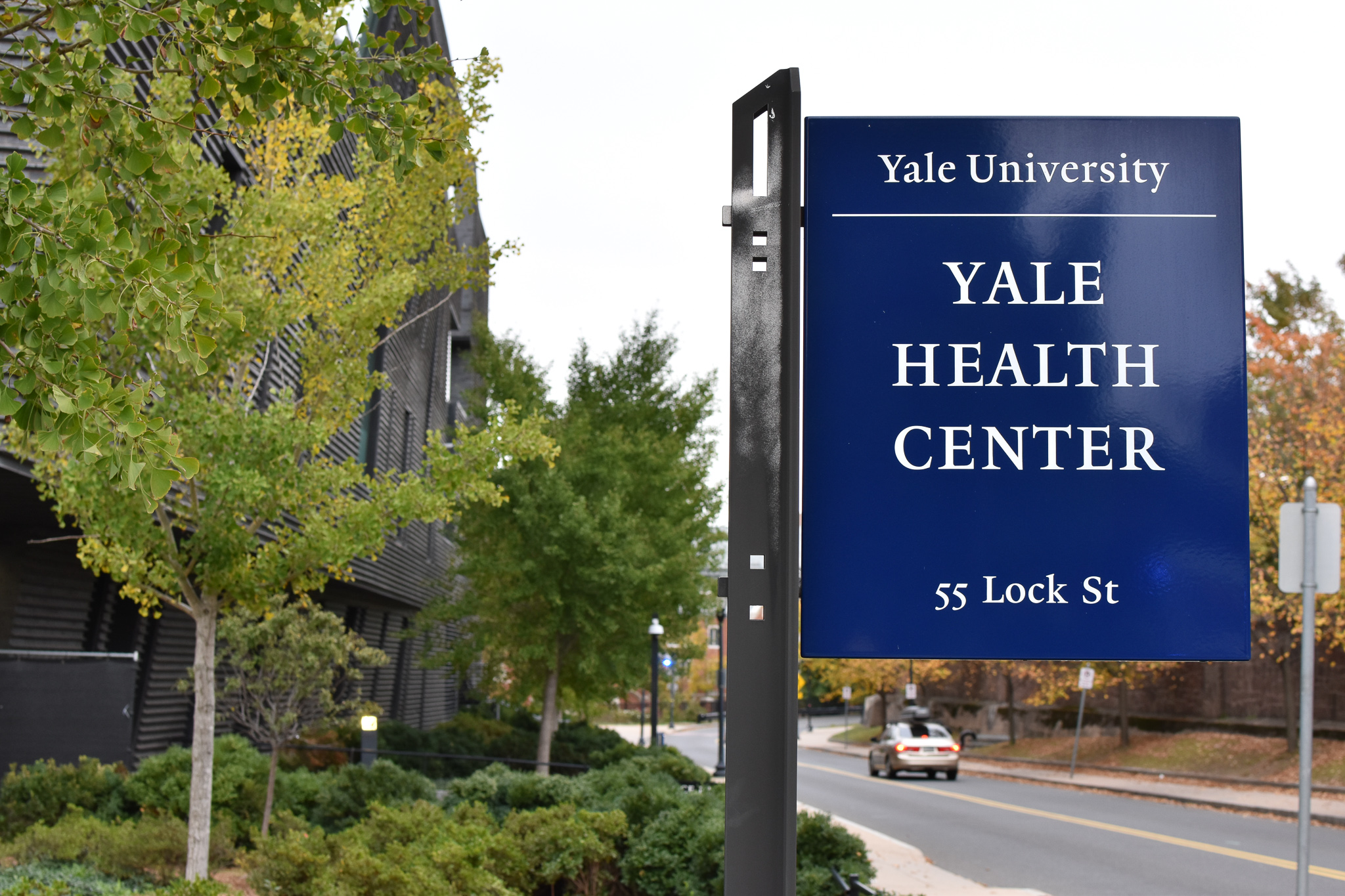Yale Health stops collecting positive COVID-19 reports
Nearly four years after the beginning of the COVID-19 pandemic, Yale Health will end its COVID Resource Line, move COVID-19 information away from a specified website to the Campus Health website and stop collecting positive case reports.

Karen Lin, Senior Photographer
Nearly four years after New Haven announced a state of emergency and students were first told courses would be online for the remainder of the spring semester, the University will end its collection of positive COVID-19 reports and other campus COVID-19 resources.
A Feb. 20 email from Chief Campus Health Officer Madeline Wilson announced that Yale Health would be ending the Campus COVID Resource Line, a phone line for information on COVID-19, on Feb. 23 and positive COVID-19 cases would no longer be reported to the University.
Instructions for those who test positive for COVID-19 are now located on the Campus Health website, which has replaced the dedicated COVID-19 site.
But English professor Katie Trumpener, who currently teaches her classes on Zoom because she is immunocompromised and was hoping to return to hybrid teaching — while masked — next semester, is worried that the lack COVID-19 monitoring may make it unsafe for her to return to the classroom.
“I really miss live university life, including casual interactions with students and colleagues,” Trumpener wrote to the News. “But I have to keep weighing isolation against safety.”
According to Wilson’s email, rapid antigen tests are still available at some campus locations, and undergraduates will still have access to isolation kits in their residential colleges.
The ending of positive case reporting comes as the University has slowly moved toward relaxed COVID-19 policies since late 2022. Even as campus COVID-19 cases rose early in the fall 2023 semester, the University stuck with scaled-back policies on isolation housing and contact tracing, following the World Health Organization’s declaration of the end of the COVID-19 public health emergency on May 11, 2023.
“These system changes do not mean that we are taking our eye off the ball—far from it,” Wilson wrote in her Feb. 20 email. “The Campus Health team continues to monitor local and national trends for COVID, other infectious diseases, and other issues that may impact campus public health.”
Dean of Yale College Pericles Lewis told the News that other resources, like isolation housing, have not been used much this academic year. In her email, Wilson wrote that recommended isolation for positive cases remains at five days.
“I think the thing is with all of our vaccines, and especially for young people, most people are treating it a little bit more like they would some other virus,” Lewis said. “For faculty and staff, because we’re older, there’s a little bit more risk involved in general, and so we definitely encourage people who have COVID to stay home and follow the CDC guidance.”
The current CDC guidance recommends that those who have COVID-19, or suspect they might and do not have test results, should isolate. Upon receiving a positive test result, they should isolate themselves at home for five days.
Albert Ko, professor of public health at the School of Public Health, told the News that new COVID-19 variants are less virulent and more transmissible and more people gain immunity, either through vaccination or getting infected.
Ko said that the changes to Yale Health’s COVID-19 policy “makes sense,” but also emphasized that high-risk people, including elderly and immunocompromised populations, are still at risk and should take precautions such as masking and staying up to date on vaccinations.
“This is a difficult situation because COVID is still a disease that’s causing significant mortality in the United States,” Ko said. “The good news is that there are ways to mitigate severe effects.”
Yale Health is located at 55 Lock St.







